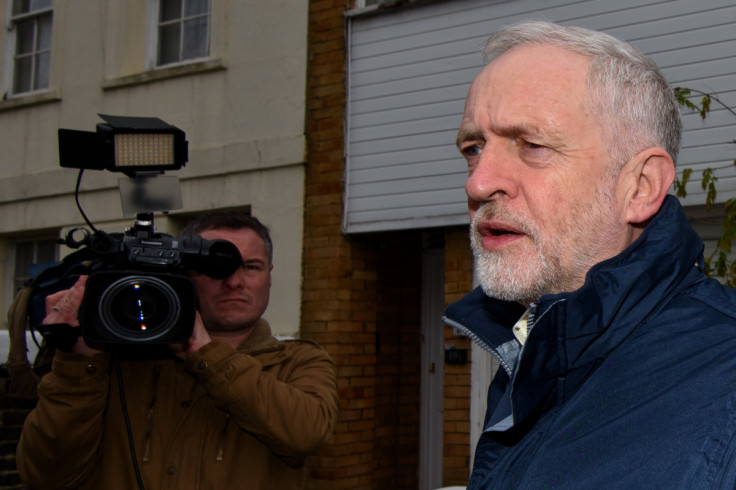Syria air strikes vote: If Jeremy Corbyn wants peace he should consider Western intervention successes

The 2003 Iraq war is the default argument of the anti-war left, of which the Labour leader Jeremy Corbyn is very much a permanent fixture. Whenever Western military intervention is proposed, glib phrases roll off the tongues of Corbyn's activist milieu like butter off a hot knife. "Not another Iraq!"; "didn't we learn anything from Iraq?"; "bombing never works – look at Iraq!", they shout.
There is of course truth to these platitudes. Whatever one's position when it comes to British air strikes against Islamic State (Isis) in Syria, the botched invasion of Iraq in 2003 stands as a stark warning against Western military hubris.
Even those who believe it was right to topple Saddam Hussein must admit the aftermath of the US-led invasion was appallingly managed – and with a horrifying human cost. As an Iraqi citizen from Fallujah informed US journalist George Packer at the time: "We were happy when you overthrew Saddam. It's what you did after you threw out Saddam that's p****d us off."
The blame for this colossal failure lies in the fact that the Bush administration appeared to believe it could go into Iraq, overthrow Hussein and get out straight away – paying for the whole thing with Iraqi oil money. As a Defence Department official told Packer at the time: "Rummy and Wolfowitz [Donald Rumsfeld and Paul Wolfowitz] did not believe the US would need to run a post-conflict Iraq".
The better of two evils
Yet despite the failures in Iraq, it is worth remembering the choice before the British and US governments in 2003 was not a straight choice between good and evil, but rather between two evils. The alternative to overthrowing Hussein was the continuation of one of the world's worst dictatorships. One can accept this while being resolutely opposed to that war. This is called nuance.
Yet nuance is alien to the anti-war politics that prevails on the British left under the leadership of Corbyn. In using the Iraq war as its only foreign policy point of reference, missing from the historical record are the instances where mass killing was averted by the deployment of Western military force.
To listen to the Labour leader, you would think successful military interventions in Sierra Leone in 2000, in Kosovo in 1999 and in Iraq in 2014 were mere figments of a warmongering imagination.
The truth is that interventions sometimes work and sometimes do not. Those whose initial reaction to tragedy is always to call for bombing are no more to be listened to than those who mouth trite platitudes about "giving peace a chance".
We are good at calling out the first camp but Corbyn is far too firmly rooted in the second. Everyone should want a diplomatic solution rather than war but the Labour leader appears incapable of even acknowledging the instances where the use of force has played a decisive role in saving lives.
He may have been right in opposing Iraq. We might even concede, for the sake of argument, that Corbyn was correct in opposing interventions in Afghanistan and Libya. But unless one sullies oneself in conspiracy theories, it is abundantly clear that Western intervention has been a force for good in the recent past as often as it has sown chaos.
'Illegal' air strikes
During the recent Labour leadership contest, Corbyn said he could not think of a single instance where the deployment or the British armed forces would be justified. True to form, it is evident today that Corbyn is unwilling to countenance supporting air strikes against IS in Syria regardless of the strength of the case for doing so. Keeping up an illusory façade of thoughtfulness, the Labour line is that air strikes in Syria would be "illegal".
Yet when the Iraqi government asked for Western military assistance in September 2014 – assistance that was unequivocally legal – Corbyn opposed that too. It was these air strikes, in support of the Kurds and Yazidi, which helped successfully drive IS out of the Iraqi town of Sinjar in August. Sinjar's mayor, Mahma Khalil, has now appealed for international help in uncovering the mass graves IS left behind – mass graves that would almost certainly be multiplying had Corbyn been listened to when MPs voted on air strikes in 2014.
We all make mistakes and Corbyn is right to wag his finger at those who have failed to learn from the botched invasion of Iraq in 2003. But the Labour leader shows no sign of contrition for his own failure to read the situation in Iraq in 2014. Nor for his shameful downplaying of Slobodan Milosevic's crimes in Kosovo – all because it is seemingly harder to admit that Western interventions occasionally work.
If Corbyn really wants "straight talking, honest politics", he should be honest about the successes – as well as the failures – of military action.
© Copyright IBTimes 2025. All rights reserved.






















